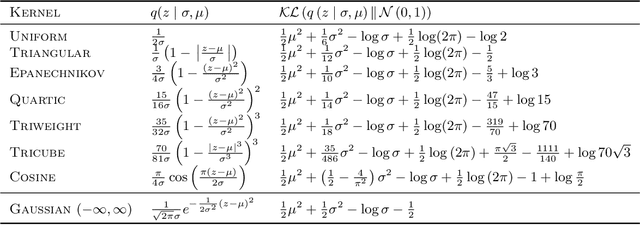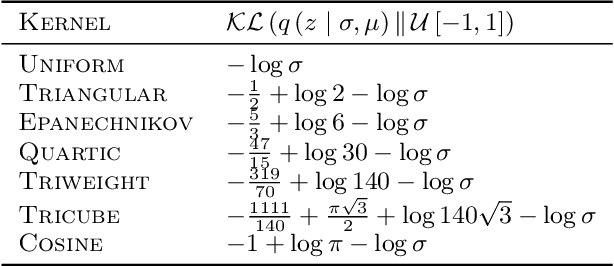Deterministic Decoding for Discrete Data in Variational Autoencoders
Paper and Code
Mar 04, 2020



Variational autoencoders are prominent generative models for modeling discrete data. However, with flexible decoders, they tend to ignore the latent codes. In this paper, we study a VAE model with a deterministic decoder (DD-VAE) for sequential data that selects the highest-scoring tokens instead of sampling. Deterministic decoding solely relies on latent codes as the only way to produce diverse objects, which improves the structure of the learned manifold. To implement DD-VAE, we propose a new class of bounded support proposal distributions and derive Kullback-Leibler divergence for Gaussian and uniform priors. We also study a continuous relaxation of deterministic decoding objective function and analyze the relation of reconstruction accuracy and relaxation parameters. We demonstrate the performance of DD-VAE on multiple datasets, including molecular generation and optimization problems.
 Add to Chrome
Add to Chrome Add to Firefox
Add to Firefox Add to Edge
Add to Edge